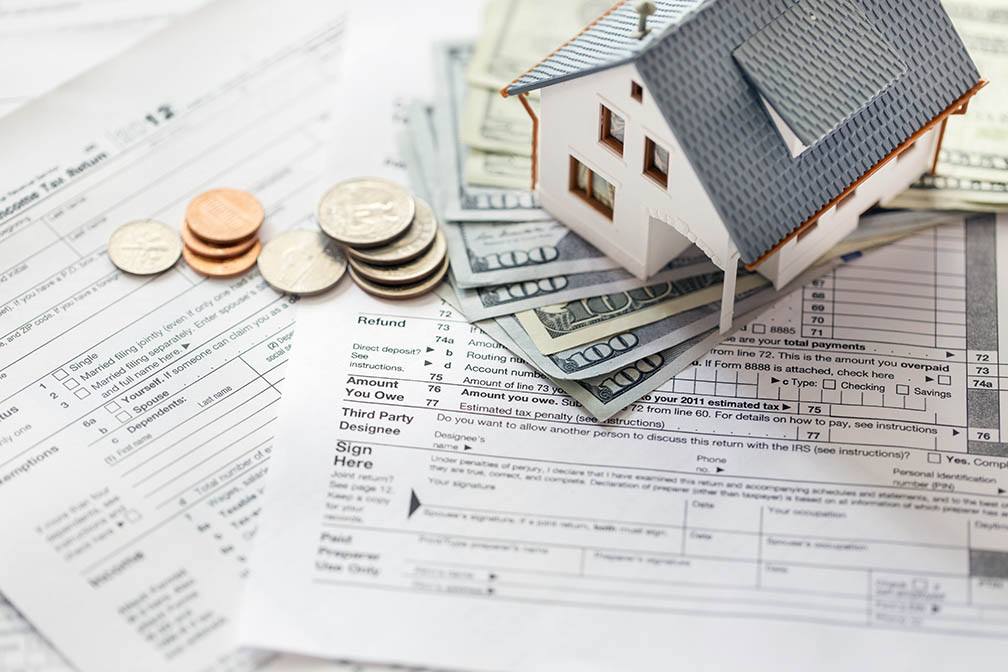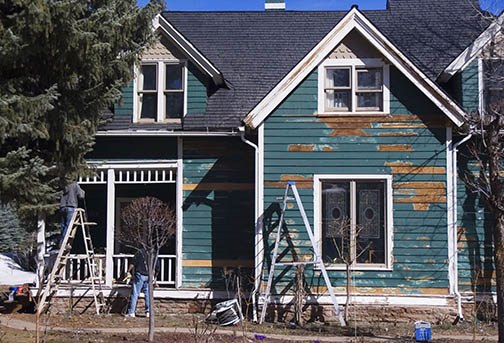 Are you thinking about buying that perfect new home? Whether you’re buying for yourself or a new home for a family, there will be many costs involved. Let’s take a look at 3 budgeting tips that will help make home ownership on a single income easier.
Are you thinking about buying that perfect new home? Whether you’re buying for yourself or a new home for a family, there will be many costs involved. Let’s take a look at 3 budgeting tips that will help make home ownership on a single income easier.
Get A Full Picture Of Home Ownership Costs
Buying a home is never as simple as paying a mortgage payment each month. So, as with most budgets the first place to start is a full consideration of everything involved.
On top of your mortgage, what other monthly costs will come up? Consider utilities like electricity, phone, cable, water and others. You’ll be responsible for property taxes, so find out how much other local owners are paying. If you’re buying into a community, you may have to pay monthly fees to a homeowners’ association.
When you’re visiting open houses and talking to owners, be sure to get a full picture of their monthly costs. It will help you build a responsible budget.
Keep Your Credit As Strong As Possible
It might sound obvious, but keeping your credit or FICO score spotless is important. Buying a home on a single income means that you’ll need a mortgage. Depending on the home you’re buying, this might be significant. Your credit score is one of many factors your lender will use to assess you, but it’s the most important. So keep those bills paid on time and avoid any black marks on your credit report.
Plan Ahead For Unexpected Budget Shocks
Don’t forget to think ahead at events that — while unlikely — may shock your finances. Having one income means that you’re one negative health event away from being out of work. What happens if the income-earner gets sick, fired or laid off? Is there other work nearby, or would you need to move? Consider the different types of insurance you can get on your mortgage and home. And how much you’ll need to put away in a ‘rainy day fund’ each month.
While it might be a bit more of a struggle, it’s still possible to buy a home on a single income. For more tips and insight, be sure to contact your local real estate professional. They’ll be able to share how other single-income families have bought homes in your local market.
 The idea of purchasing a property and having renters can be an exciting business venture that offers lucrative financial rewards. However, there’s a lot involved in being a successful landlord and it’s important to be aware of what’s required before making the commitment. Whether you’re investing in one rental property or five, here are some questions you should ask yourself before getting involved.
The idea of purchasing a property and having renters can be an exciting business venture that offers lucrative financial rewards. However, there’s a lot involved in being a successful landlord and it’s important to be aware of what’s required before making the commitment. Whether you’re investing in one rental property or five, here are some questions you should ask yourself before getting involved. Are you on the hunt for a more efficient living space? Whether you’re a first-time buyer or downsizing from a larger home, buying small can still mean living big. Let’s explore four positives to living in a smaller, more intimate house or condo.
Are you on the hunt for a more efficient living space? Whether you’re a first-time buyer or downsizing from a larger home, buying small can still mean living big. Let’s explore four positives to living in a smaller, more intimate house or condo. It’s great news if you have enough financial capital that you have the option of investing in a rental property, but being able to afford it is only half the battle. Since you’ll need to find and keep the right renters in order to make a profit, here are some ways that you can ensure your property will be a financial benefit.
It’s great news if you have enough financial capital that you have the option of investing in a rental property, but being able to afford it is only half the battle. Since you’ll need to find and keep the right renters in order to make a profit, here are some ways that you can ensure your property will be a financial benefit. The prospect of finding the home you’ve always dreamed of can be such an exciting prospect that it’s easy to forget all about the process of negotiating. However, it’s important to keep a few things to yourself when it comes to the art of making the deal. If you’re currently searching for the right place and are preparing to sign on the dotted line, here are a few phrases it’s best to avoid.
The prospect of finding the home you’ve always dreamed of can be such an exciting prospect that it’s easy to forget all about the process of negotiating. However, it’s important to keep a few things to yourself when it comes to the art of making the deal. If you’re currently searching for the right place and are preparing to sign on the dotted line, here are a few phrases it’s best to avoid. With all of the home renovation and fixer-upper shows on television, the idea of completely renovating and re-doing an old home can seem like an enticing premise. Unfortunately, investing in the wrong fixer-upper can mean an awful lot of expenditure without the added financial rewards. Whether you’re considering investing down the road or are ready to dive in, here are a few things to consider first.
With all of the home renovation and fixer-upper shows on television, the idea of completely renovating and re-doing an old home can seem like an enticing premise. Unfortunately, investing in the wrong fixer-upper can mean an awful lot of expenditure without the added financial rewards. Whether you’re considering investing down the road or are ready to dive in, here are a few things to consider first.